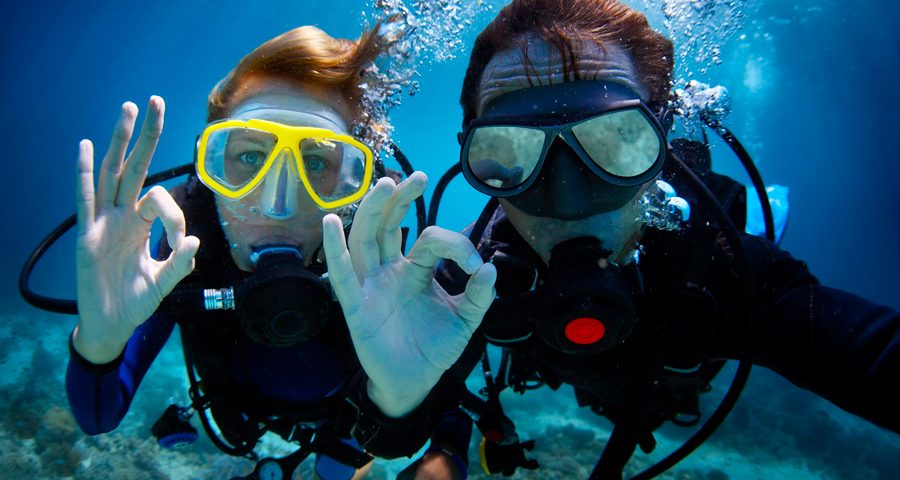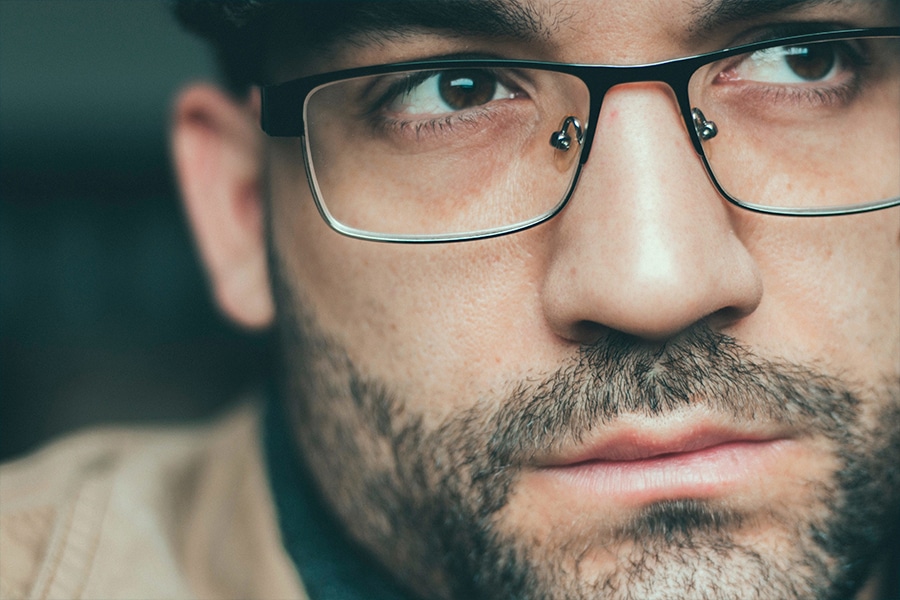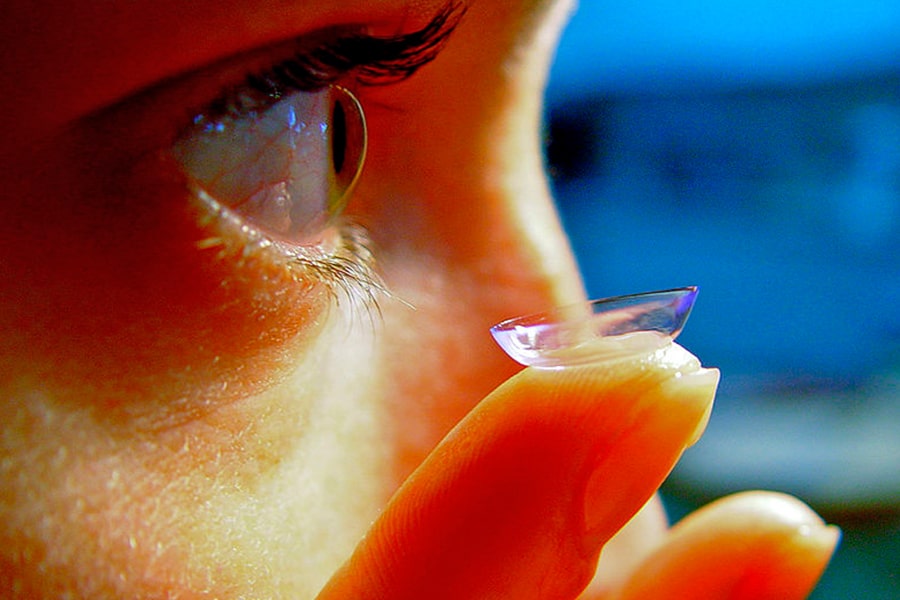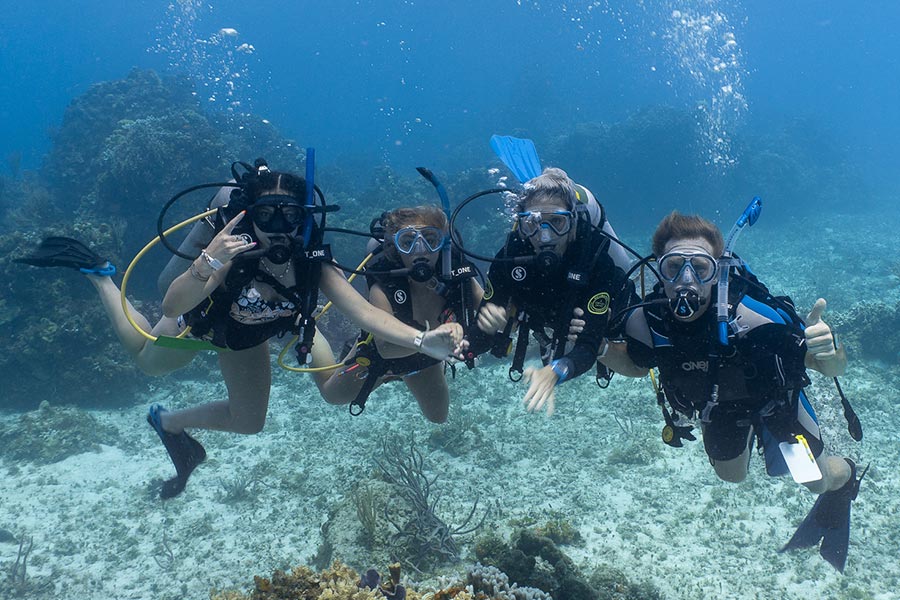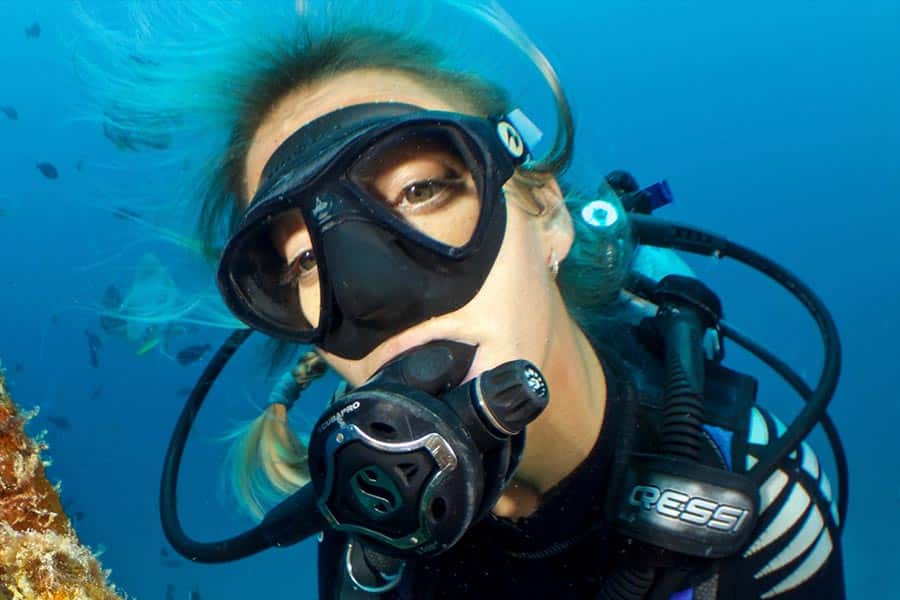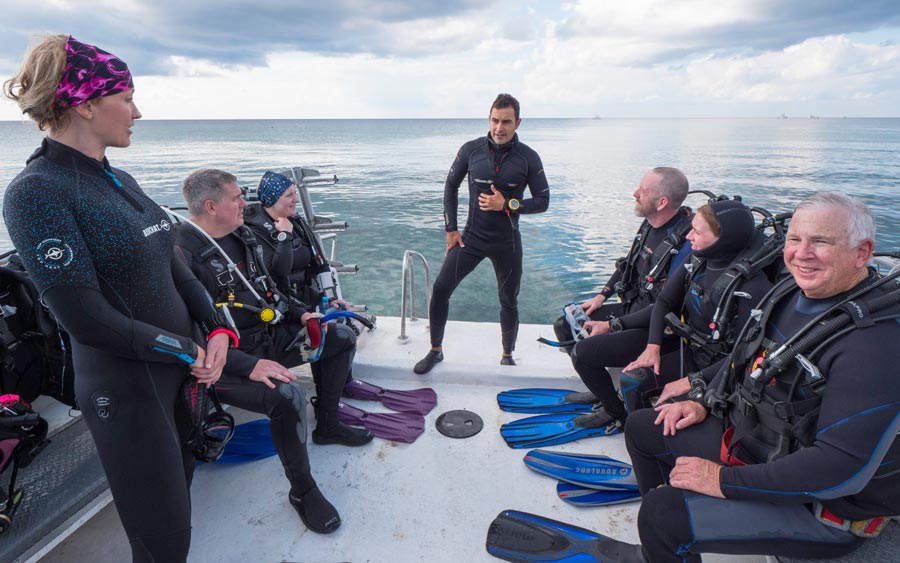Diving with glasses or diving with contact lenses? That is the question that divers with impaired vision are looking for to answer.
Using glasses or contact lenses to correct our vision is compatible with diving unless our doctor expressly contraindicates it. However, many of those with some loss of vision, do not know their real options to improve it underwater. As you know, water increases the size of things we see underwater, and sometimes that is enough to dive comfortably. However, if a diver is unable to read his/her underwater pressure gauge or to see his/her dive buddy’s hand signals, they should consider correcting their vision.
In this article, we will see the options we have for diving with glasses or diving with contact lenses, so you can choose the option that best suits your needs.




